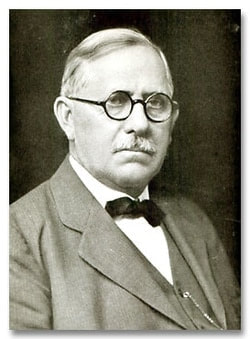
One remedy for sin, men have told us, was for us to put up a stiff fight against the inclinations to wrongdoing and by so doing we would get rid of the thing, and would come off more than conquerors. Others have said that all we need to get rid of sin is to be well born, well fed, and well educated; to rise up in our own power and make men of ourselves and down the sin.
We heard of a father who had a son that was given to taking things that didn't belong to him, and of course the father wanted to cure the son of the awful disease of sin, so the old man tied the boy's hands behind him in order to cure him of theft. Another fellow was always getting drunk and the city authorities said that he had to be cured of drunkenness, so they locked him up in jail. By so doing they hoped to cure him of the drink habit, believing that the jail was the remedy for drunkenness. The father that tied the boy's hands to cure him of stealing did not seem to realize that the poor boy had stolen these goods with his heart and not with his hands. Back behind the hands was the boy's will power, and back behind the will power was that dark, black, muddy, murky, mysterious, unbelievable, unthinkable, unexplainable something that the scientists call heredity and that the theologians call depravity, that the Bible calls carnality.
When two poor old sinners get drunk and have a fight and are arrested and brought to trial, and pay out as much for a fine as they will make in a month of hard labor, when they undertake to explain the thing, they call it deviltry, and this is the thing that causes a man to get drunk or to steal. For who has not seen men by the hundred who really wanted to do right and did their best to use their will power but that peculiar thing that we call the carnal self was so uncontrolled that the poor man would go down in spite of his will power?
So it is something away back in the man's life that must be touched by Divinity, and lifted out and removed, before the poor man can be set right and even do what he feels that he ought to do.
I have known preachers who rejected holiness and the second work of grace and called holiness people "second-blessingists"; and yet in their own pulpits in trying to make the people do right and come across and do good, I have known them to even lose their temper and almost go into a rage, and at the same time before they would leave the pulpit deny the remedy for worldliness in the heart of a believer.
For as long as carnality is there, the man is going with the world, and the only hope in the world to get the world out of a man is to get him sanctified wholly and filled with the Holy Ghost. The man who is filled with the Holy Ghost will not have to be put in jail to keep him from getting drunk, and the man filled with the Holy Ghost will not have to have his hands tied to keep him from stealing. The only hope of the drunkard or the thief is first in the birth of the Spirit, and second in the baptism with the Holy Ghost and fire. This is the only remedy. This will make an honest man out of a rascal and a sober man out of a drunkard. The nature of man must be cleansed and purified. I suppose that the physician would call it constitutional treatment; that is, the remedy must go deeper than the surface. Men have tried to improve themselves by what they call "good resolutions," by "turning over a new leaf," by "rising up" as they call it, and "asserting their manhood."
Robinson, Reuben A. (Bud). The Collected Works of 'Uncle Bud' Robinson. Jawbone Digital. Kindle Edition.
 RSS Feed
RSS Feed